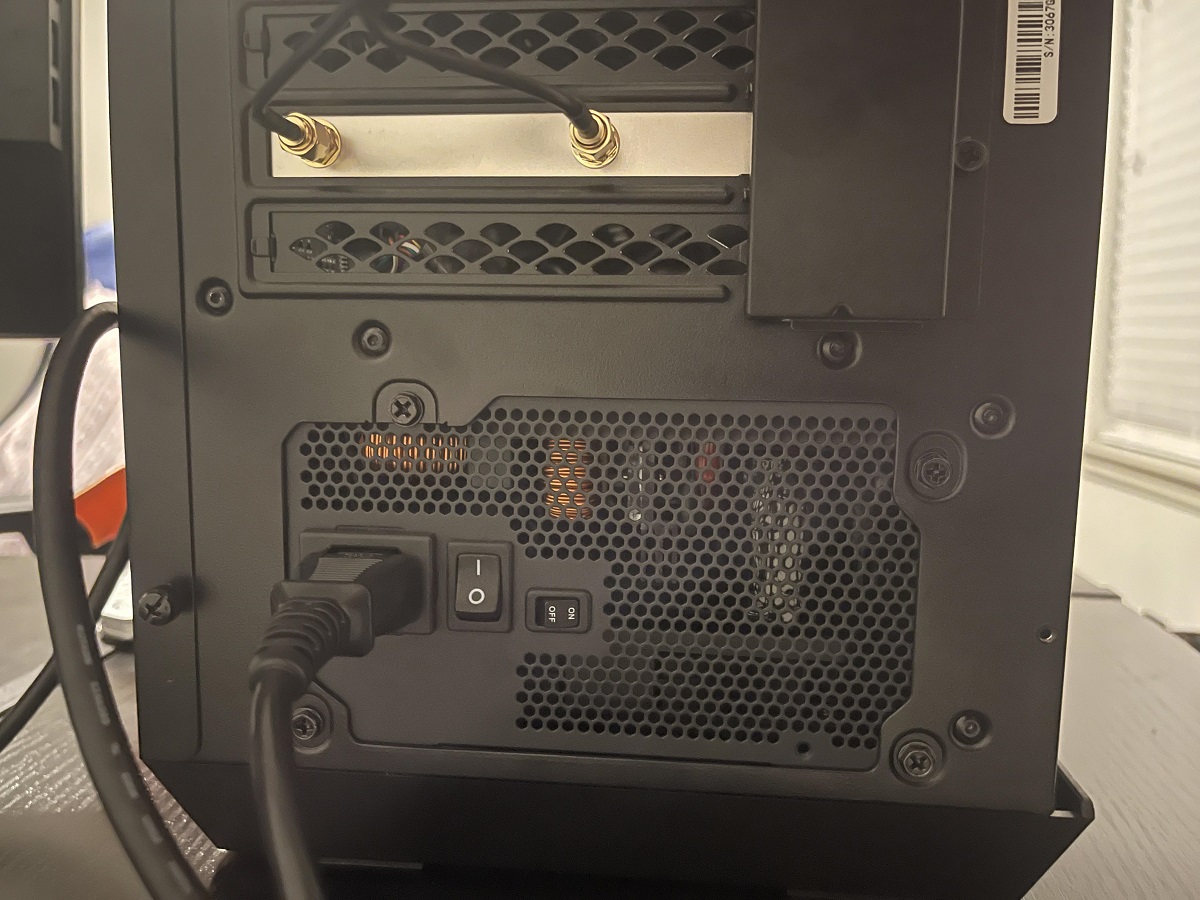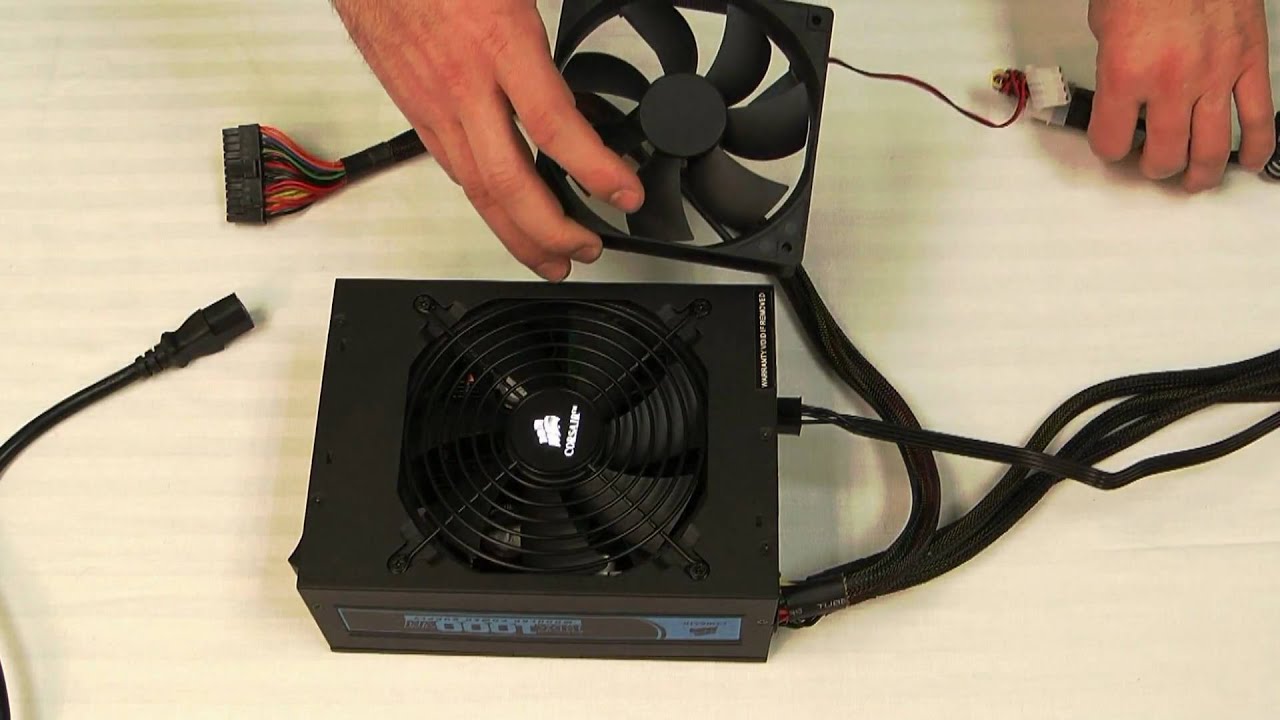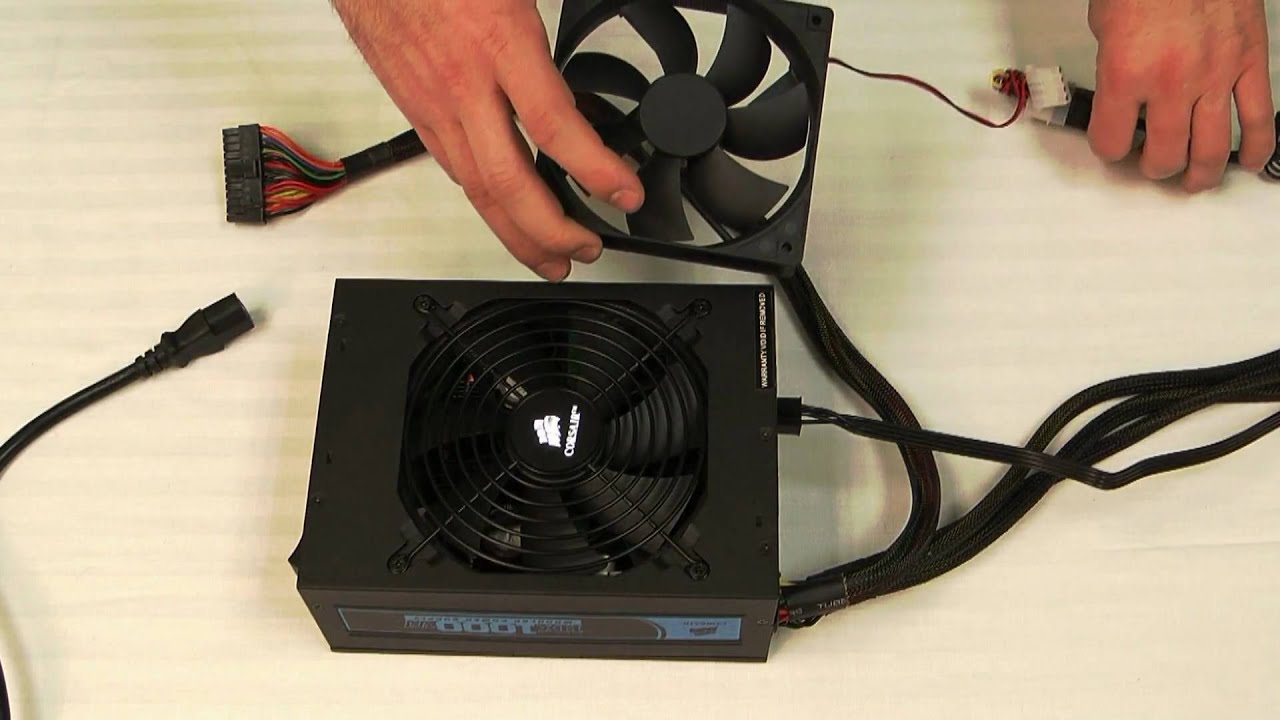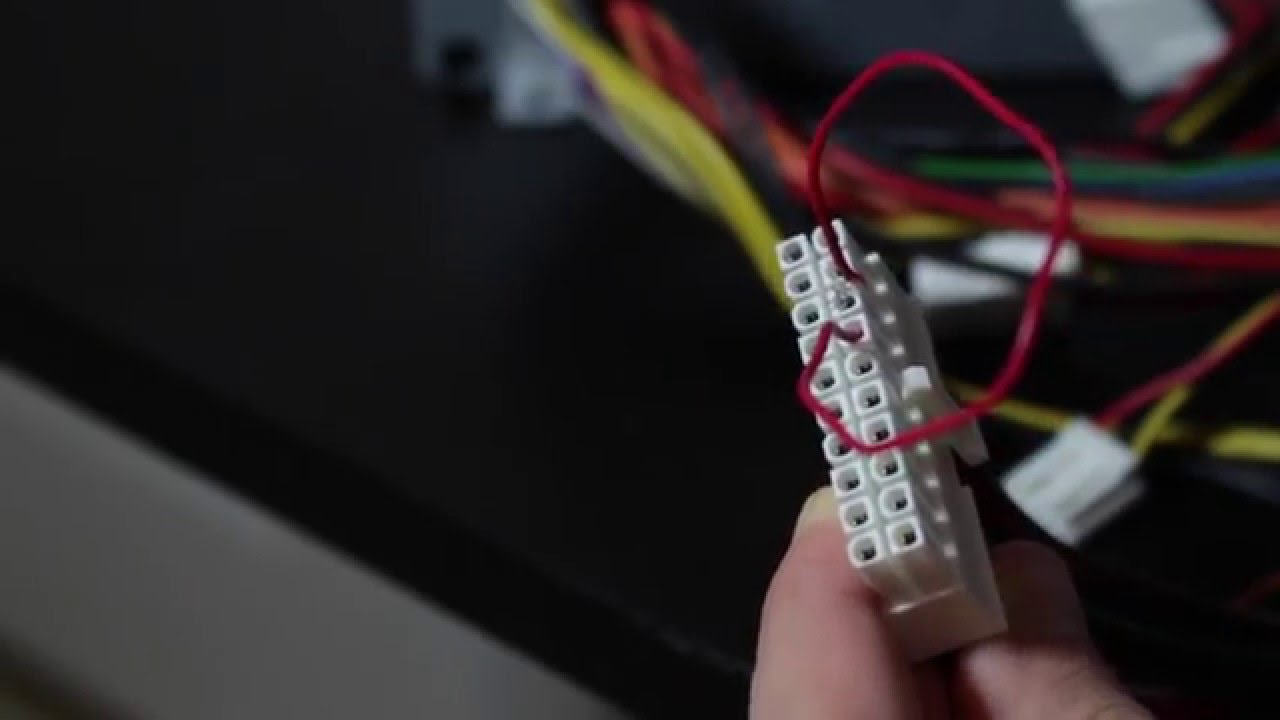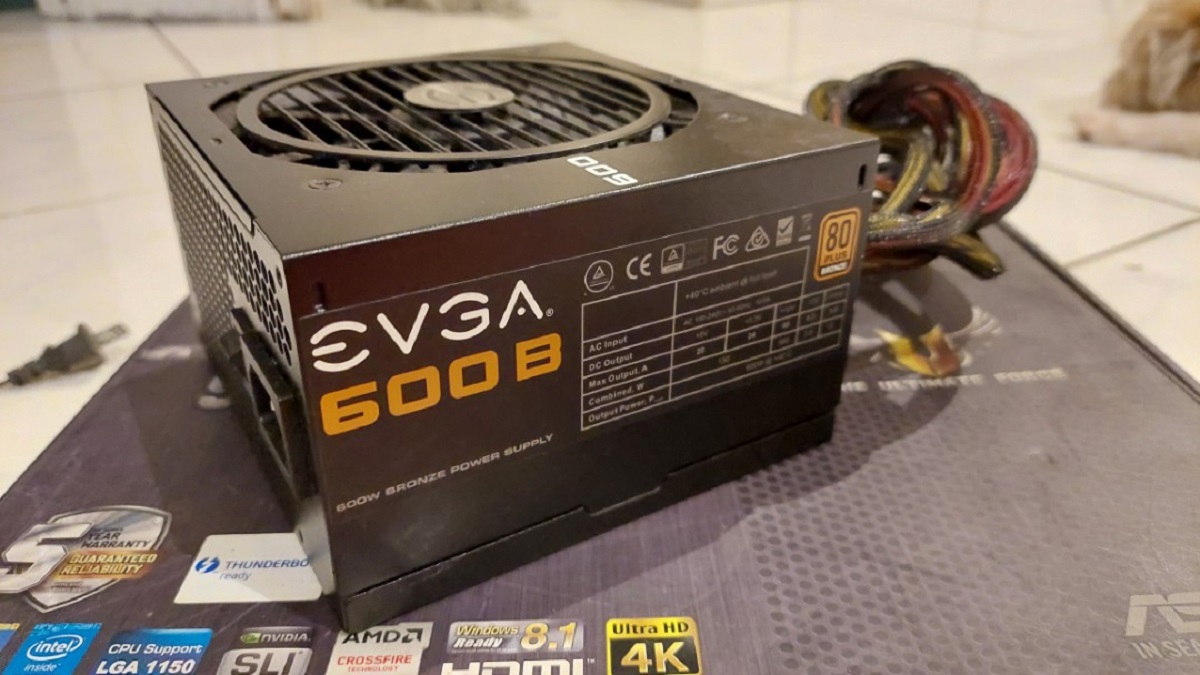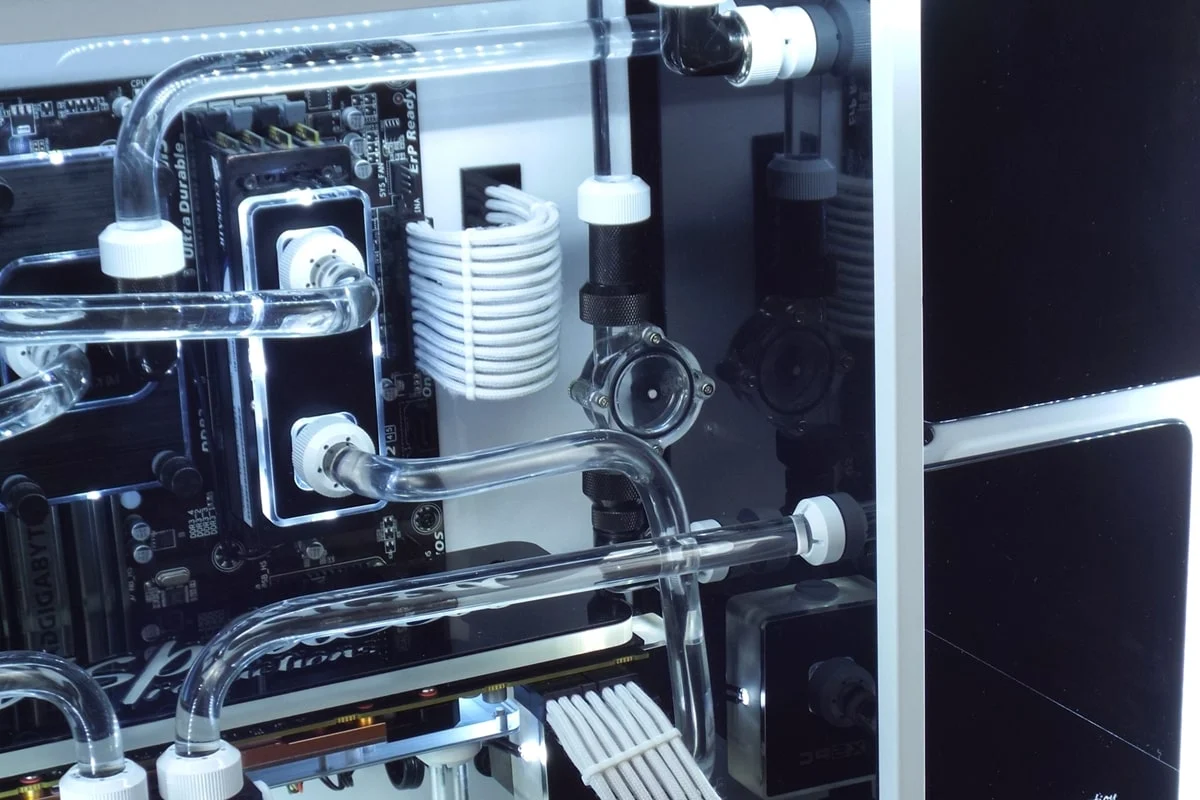Introduction
Welcome to the world of computer hardware, where every component plays a crucial role in the smooth functioning of your system. One essential component that often goes unnoticed but is fundamental to the operation of your computer is the Power Supply Unit (PSU). The PSU is responsible for supplying the right amount of power to all the other components of your computer, ensuring that they receive the necessary electrical energy to function optimally.
Understanding how the PSU works and its various states is vital for any computer user. You may have noticed that your PSU has an “Off” setting, but what does this actually mean? Why would you need to turn off the PSU in the first place, and what are the consequences of doing so? In this article, we will explore the concept of turning off the PSU and delve into the reasons behind it, as well as the potential outcomes of this action. Let’s dive in!
Before we proceed, let’s clarify what exactly a PSU is. The Power Supply Unit is an integral part of your computer that takes AC (alternating current) power from the wall outlet and converts it into DC (direct current) power that is compatible with the internal components of your system. It provides the necessary voltage and current levels to run your CPU, graphics card, motherboard, and other peripherals.
Definition of PSU
The Power Supply Unit (PSU) is a hardware component responsible for converting the incoming AC power from the wall outlet into the appropriate DC power required by the internal components of your computer. It is a crucial part of the system, ensuring that all the hardware receives a consistent and reliable power supply.
The PSU typically comes in a rectangular metal box and is connected to the motherboard and other components through multiple power cables. It is rated based on its maximum power output, typically measured in watts (W). The higher the wattage output, the more power-hungry components your PSU can support.
In addition to converting the power source, the PSU also performs several other important functions. It regulates the voltage and current levels to ensure that they remain within safe operating limits for the connected hardware. It also protects the system from power surges and fluctuations, preventing any potential damage to the components.
PSUs come in various form factors and configurations to accommodate different computer setups. The most common types include ATX (Advanced Technology eXtended), SFX (Small Form Factor), and TFX (Thin Form Factor). These different form factors are designed to fit specific case sizes and provide adequate power for the components used in those systems.
Furthermore, PSUs are available in different efficiency ratings, denoted by the 80 Plus certification. These ratings indicate how efficiently the PSU converts AC power into DC power. Higher efficiency ratings mean less energy wastage and lower operating costs. The efficiency levels range from 80 Plus (80% efficient) to 80 Plus Titanium (92% or higher efficient).
In summary, the PSU is an essential component that ensures your computer receives the necessary power to operate reliably. It converts AC power into DC power, regulates voltage and current levels, and protects the system from power fluctuations. Understanding the role of the PSU is vital in maintaining the stability and longevity of your computer system.
What Does “Off” on the PSU Mean?
When you see the “Off” setting on your PSU, it refers to the state of the power supply being completely turned off, cutting off the electricity supply to the entire system. In this state, the PSU ceases to provide power to the motherboard and all the connected components.
It is important to note that when the PSU is turned off, it is different from simply shutting down your computer through the operating system. Shutting down your computer using the OS still keeps the PSU in a standby mode, which allows it to provide some minimal power to certain components, such as the motherboard and other peripherals, to facilitate a quick startup when you turn it on again. However, when you turn off the PSU, it completely shuts down all power supply, resulting in a complete power loss within the system.
You may wonder why you would need to turn off the PSU if shutting down your computer through the OS accomplishes the same goal. There are various reasons why you might want to turn off the PSU. One common reason is to prevent any incidental power consumption when the computer is not in use. This can help reduce electricity usage and lower energy costs. In addition, completely turning off the PSU ensures that there is no standby power flowing through the system, which can be beneficial for maintenance or repairs.
Furthermore, turning off the PSU is sometimes necessary when troubleshooting certain hardware issues. It allows you to fully reset the power supply and clear any residual charge that might be causing problems. This can be particularly helpful in situations where your computer is not booting up properly or experiencing intermittent issues.
It is important to note that when you turn off the PSU, you may need to wait a few seconds before turning it back on again. This allows the capacitors in the PSU to discharge completely before restarting the power supply, ensuring a clean and stable power flow to the system.
In summary, when the PSU is turned off, it means that all power supply to the system is cut off, providing a complete power loss. This can be beneficial for reducing power consumption, performing maintenance or repairs, and troubleshooting certain hardware issues.
Reasons for Turning Off the PSU
While shutting down your computer through the operating system is a common way to power off your system, there are specific situations where you may need to turn off the PSU completely. Here are some reasons why you might want to turn off the PSU:
- Reducing power consumption: Completely turning off the PSU helps eliminate any standby power consumption. This is particularly useful when your computer is not in use for an extended period, such as overnight or when you’re away on vacation. By cutting off the power supply entirely, you can conserve energy and reduce your electricity bills.
- Maintenance and repairs: When performing maintenance tasks or making hardware changes to your computer, it is often recommended to turn off the PSU. This ensures complete safety and prevents any accidental electrical shocks. It allows you to work on the internal components without any power flowing through the system, reducing the risk of damage to yourself or the hardware.
- Troubleshooting hardware issues: In certain cases, turning off the PSU can help troubleshoot hardware problems. For example, if your computer is experiencing boot issues or random crashes, a complete power cycle might help resolve the problem. By turning off the PSU, you can clear any residual charge or reset the power supply, which can potentially fix the issue and restore normal functionality.
- System resets: Sometimes, when your computer is not responding or behaving erratically, performing a system reset can be beneficial. This involves turning off the PSU and draining any residual power from the system. By doing so, you effectively reset and clear any temporary configuration issues or conflicts that may have been causing the problem.
- Preventing electrical damage: In the event of a power surge or lightning strike, turning off the PSU can help protect your computer from potential electrical damage. By cutting off the power supply at the source, you decrease the chances of any power surge reaching the internal components and causing irreversible harm.
It is worth mentioning that regular shutdowns through the operating system are generally sufficient for day-to-day use. However, the ability to turn off the PSU provides an additional level of control and convenience in certain situations where complete power loss is desired or required.
Now that we have explored the reasons for turning off the PSU, let’s examine the potential consequences of this action.
Consequences of Turning Off the PSU
While turning off the PSU can be beneficial in certain situations, it is important to understand the potential consequences of this action. Here are a few considerations:
- Data loss: When you turn off the PSU, the power supply to your computer is cut off completely. Any unsaved work or open files that have not been properly saved may be lost. It is crucial to regularly save your work to prevent data loss in case of power interruptions.
- Delayed startup: When you turn off the PSU, the next time you power on your computer, it will take longer to start up compared to simply waking it from standby mode. This is because the entire system needs to boot up from scratch, including the operating system and any startup processes.
- Loss of settings: Some system settings or configurations that are typically stored in volatile memory may be lost when you turn off the PSU. For instance, the system clock may reset, and any customized BIOS settings may revert to their default values. Restoring these settings will be necessary after a complete power loss.
- Hardware wear and tear: Frequent power cycling by turning off the PSU can potentially contribute to increased wear and tear on the hardware components. Powering on and off frequently can put stress on electrical components, such as capacitors. It is generally recommended to avoid unnecessary power cycling.
- Inconvenience: Completely turning off the PSU may cause inconvenience in situations where you require quick access to your computer. Having to wait for a complete system startup can be time-consuming, and it may disrupt your workflow if you frequently need to power on and off your computer.
It is important to weigh the potential consequences against the specific benefits or requirements for turning off the PSU. While the consequences listed above may seem significant, they can often be mitigated with proper precautions, such as saving your work regularly and implementing file backup systems.
Now that we have explored the consequences of turning off the PSU, let’s move on to discussing common scenarios where turning off the PSU is advantageous.
Common Scenarios of Turning Off the PSU
Although shutting down your computer through the operating system is the standard method to power off your system, there are certain scenarios where turning off the PSU can be advantageous. Let’s explore some common situations:
- Extended periods of inactivity: When you know that your computer will not be in use for an extended period, such as during vacations or weekends, turning off the PSU can help conserve energy and reduce electricity costs. By completely cutting off the power supply, you ensure that no standby power is consumed during these idle periods.
- Maintenance and upgrades: When performing hardware upgrades or maintenance tasks, it is recommended to turn off the PSU. This ensures a safe working environment, preventing any accidental electrical shocks. It also allows you to work on the internal components without power flowing through the system, minimizing the risk of damaging the hardware.
- Troubleshooting hardware issues: If you’re experiencing hardware problems, turning off the PSU can be beneficial for troubleshooting. It allows you to perform a complete power cycle and reset the system, which can often resolve common issues like boot failures or random crashes. Additionally, turning off the PSU can help discharge any residual charge that might be causing the problem.
- Power surge protection: In areas prone to electrical storms or frequent power surges, turning off the PSU can act as an additional layer of protection for your computer. By cutting off the power supply at the source, you reduce the risk of any voltage spikes or electrical surges affecting your system and potentially damaging the hardware.
It is important to note that while there are advantages to turning off the PSU in these scenarios, it is not always necessary for day-to-day use. Most modern computers are designed to handle regular shutdowns through the operating system without any adverse effects. Turning off the PSU should be considered as an additional option when specific circumstances warrant it.
By understanding these common scenarios, you can make informed decisions on when it is appropriate to turn off the PSU for your specific needs.
Conclusion
The Power Supply Unit (PSU) is a critical component of your computer system, responsible for converting the incoming AC power into the appropriate DC power for your internal components. While the “Off” setting on the PSU may seem straightforward, it is important to understand its implications and when it is necessary or beneficial to turn off the PSU.
Turning off the PSU completely cuts off the power supply to the system, providing a complete power loss. This can be advantageous in scenarios such as reducing power consumption during extended periods of inactivity, performing maintenance or repairs, troubleshooting hardware issues, and protecting against power surges.
However, it is essential to consider the potential consequences of turning off the PSU. These include the risk of data loss, delayed startup times, loss of system settings, increased hardware wear and tear, and potential inconvenience. It is important to weigh these consequences against the specific benefits or requirements in each situation.
In most cases, regular shutdowns through the operating system are sufficient for day-to-day use. Turning off the PSU should be considered as an additional option when specific circumstances warrant it, such as when you want to reduce power consumption, perform maintenance tasks, troubleshoot hardware issues, or protect against electrical surges.
By understanding the concept of turning off the PSU, its reasons, consequences, and common scenarios, you can make informed decisions for your computer usage. Remember to follow proper procedures when turning off the PSU and allow a few seconds for the capacitors to discharge before restarting the power supply.
Ultimately, the PSU serves a vital role in maintaining the stability and longevity of your computer system. By understanding its functions and various states, including the “Off” setting, you can optimize your computer’s performance, energy efficiency, and overall user experience.







